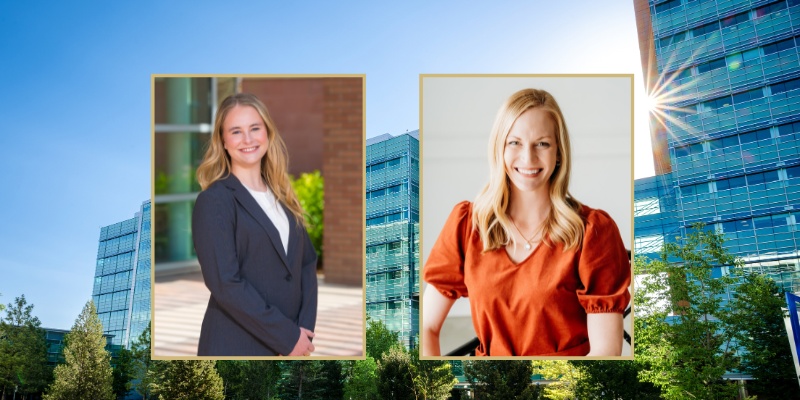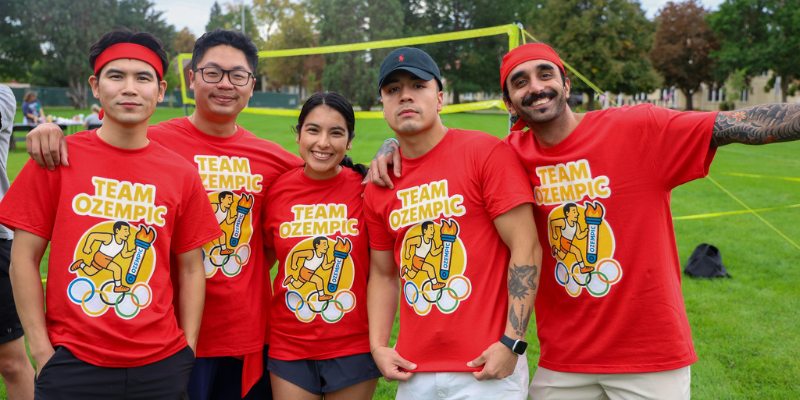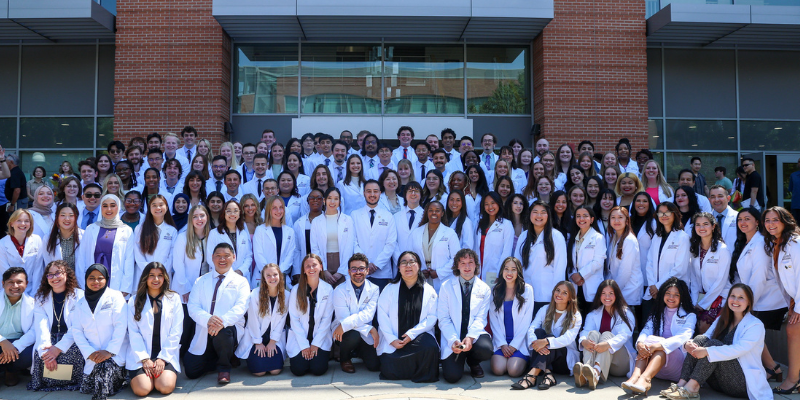Before coming to CU Pharmacy, P1 Webster Cleveland had a career as an Aviation Electronics Technician (AT) for the U.S. Navy. He received accelerated advancement to E-4 3rd Class Petty Officer out of technical school, and soon after was promoted to the rank of E-5 2nd Class Petty Officer in his first enlistment. When ATs reach the rank of Master Chief Petty Officer E-9, they are promoted to Avionics Technicians.
But, what, exactly, is all of that? Both positions are carefully trained to maintain all aviation electronic systems, from navigation and radar to tactical displays and warfare sensors. As the Navy says, “Once an aircraft launches off a carrier, pilots depend on their jet’s complex electronic systems to operate all areas of their craft and complete their mission. There is zero room for failure.” Yet, with a successful Navy career, Cleveland decided to change direction.
“Before going into the Navy, I read a journal article about pharmaceutical products. That was my first spark of interest in pharmacy. I wanted to know more about medications, design, and therapeutic effectiveness,” Cleveland explained.
“However, I had never thought about drugs beyond a visit to a provider and a prescription. Before I began reading about drugs, the extent of my knowledge was ‘medications help you when you’re sick.’”
Cleveland realized he wanted to be involved in healthcare through his own personal health journey. He found himself talking to the pharmacy staff in the Navy, and felt it was a natural interest. Though he enjoyed his job in the Navy, he realized that his career goals were elsewhere.
“I was slightly afraid if this was the right move for me since I was doing well in the Navy, but my interest was solidified after doing some research and talking to my mentors,” he said. “Pharmacy has always been fascinating to me.”
According to Cleveland, the pharmacist’s role has had the most significant impact on his own patient experience.
“It made me realize that I want to be an advocate for my family, friends, and community,” he said.
Cleveland is excited to explore more opportunities in compounding pharmacy, a role that can also be high stakes, like his previous military experience. The traditional role of compounding pharmacies is to make drugs prescribed by doctors for specific patients with needs that can't be met by commercially available drugs. Some examples include small children who need a liquid dose of a drug made only in adult-dosage tablets, or if a person is allergic to one of the ingredients in the commercial version of a drug. With a pharmacist specialized in compounding, medications can be personalized.
His plan is to take elective compounding pharmacy classes during the summer through Professional Compounding Centers of America and take compounding classes at CU Anschutz during the fall, followed by an internship.
“As a first-year pharmacy student,” Cleveland said, “I am constantly excited about learning and growing academically and professionally.”



